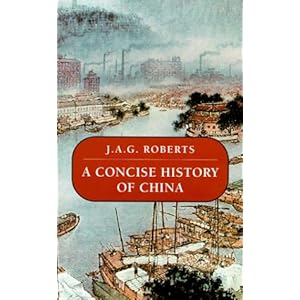Book: A Matter of Days by Hugh Ross
Description: An old-earth view takes on the challenges of young-earth proponents through a study of history, Scripture, and nature-and a testable creation model. (from Amazon.com)
This was a really good book. I found it thought-provoking and well-reasoned. It's about reasons, both Biblical and scientific, to believe in long creation days. By long creation days Ross meant "days" representing epochs rather than literal 24-hour days. Also focused on fostering reconciliation between people who believe in long vs. short (24-hour) creation days.
I would highly recommend this book to anyone curious about creationism, of any kind. It was much better and more accessible than Fingerprint of God, another Hugh Ross book--there was much, much less math, and all the science he uses as evidence is much better explained. There was also nothing theologically objectionable about this book--Hugh used just as much Biblical evidence to support his claims as scientific, if not more. He assumes that the Bible is absolutely true--every single word. It's an amazing point to start from. (There are some cool Bible verses that support current science!)
As is probably obvious by now, I do not believe in creation taking place in 6 24-hour days. I believe that evolution has happened in the past, and to some extent is happening in the present day. Why? Firstly, evolution is something that is happening, according to science, and it's something that scientists have figured out to a decent amount. Life does not stay the same. Why would God create a world that seemed to be billions of years old, where evolution appeared to be happening and have been happening for billions of years, if that wasn't true? That would be lying, and God doesn't lie. Obviously not all of science is right, but evolution is something that has stood up to tests for over a hundred years and been tested by literally millions of scientists. I think it's reasonable to accept that it has happened and is happening, at least to some extent.
Please don't get me wrong--I absolutely believe in God, specifically the God of Christianity who sent His son to die for our sins. I just also believe that evolution is perfectly compatible with Christianity and the God of the Bible. There are a lot of holes in the theory of evolution as it's argued by the scientific community in general. It continues to argue that evolution is a purely random process, when mathematics show that the chances of that, and of life evolving in only 3 billion years, are so unbelievable miniscule. It continues to argue that evolution is a purely random process, when all of life seems to have been preparing earth for humans to live there: the fact that water is exactly perfect to support life (for instance being lighter frozen, allowing warmer water to stay protected from the colder temperatures and therefore allowing life to live in it); the asteroid that wiped out the dinosaurs, allowing humans to evolve from the mammals of the time; cyanobacteria evolving photosynthesis, which creates oxygen as a byproduct and eventually led to the evolution of creatures that need oxygen to breathe (like us); the fact that life has always shows a tendency to become larger and larger. There's also so much that evolution can't explain about life itself; all of the important evolutionary 'innovations' (the origin of life, having multiple cells working together, moving from the ocean to land, flight) are things where scientists can clearly see the stages, but are completely incapable of figuring out why or how the first stage led to the second one. To me, that points to God.
The other aspect of evolution that, to me, points to God is how evolution happens. There's a lot of talk about natural selection in many discussions of evolution, but the truth is that, at least in the scientific community, most scientists today believe that random chance is the single largest driving factor of most evolution. The reason most populations that are separated from each other become so different as to become separate species is not because of natural selection leading to different adaptations; it's because of randomness in their environment (like a flood that wipes out half of the population) or their genes (a mutation, or purely in which genes get passed on and which don't) that is the reason that most populations become different enough to be seen as different species. Except, of course, that as a Christian I believe that nothing is random. God has His hand in everything, and everything happens for a reason. All of those 'random' occurrences in evolution are really God, shaping life to become how He wants it.



